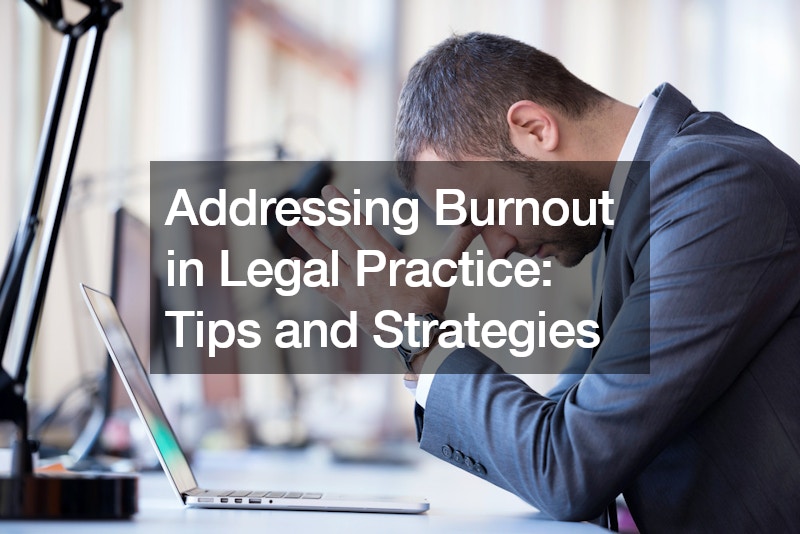

Burnout remains a pervasive challenge in the legal profession, often stemming from the overwhelming demands and pressures inherent in legal practice. It occurs when lawyers face expectations that surpass the resources available to meet them, leading to physical, emotional, and mental exhaustion. Here are effective strategies to combat and prevent burnout in legal practice:
Recognizing the Signs of Burnout
Burnout manifests uniquely in each individual but typically involves feelings of cynicism, reduced professional efficacy, and physical or emotional fatigue. It’s crucial for lawyers and law firms to identify these signs early to intervene effectively.
Promoting Work-Life Balance
Maintaining a healthy work-life balance is paramount. Lawyers should establish clear boundaries around work hours, prioritize self-care activities, and engage in hobbies or interests outside of work.
Taking regular breaks and vacations is essential for recharging and preventing burnout.
Setting Realistic Expectations
Law firms should set achievable expectations regarding workload and deadlines. Clear communication about what can realistically be accomplished within given timeframes helps mitigate stress and prevents burnout from unrealistic demands.
Building Resilience
Developing resilience against burnout involves enhancing coping strategies and stress management skills. This can include mindfulness practices, regular physical exercise, and seeking support from colleagues, mentors, or professional networks.
Professional Development and Skill Building
Continuous learning and skill development are crucial for maintaining job satisfaction and preventing burnout. Law firms can invest in training programs that enhance lawyers’ competencies and provide opportunities for career growth.
Cultivating Supportive Work Environments
Creating a supportive workplace culture is essential. This includes fostering open communication, providing regular feedback, and recognizing achievements. Team-building activities and social events can also strengthen relationships among colleagues.
Implementing Wellness Programs
Law firms can introduce wellness initiatives such as employee assistance programs (EAPs), access to mental health resources, and counseling services. These programs demonstrate a commitment to prioritizing the well-being of their employees and mitigating burnout.
Encouraging Time Management Skills
Effective time management is critical in preventing burnout. Lawyers should prioritize tasks, delegate when possible, and avoid overcommitting themselves. Tools and techniques for organizing workload can significantly reduce stress levels.
Advocating for Boundaries
Encouraging lawyers to establish boundaries around work-related communications, such as after-hours emails or phone calls, helps prevent burnout. Respect for personal time and space contributes to overall well-being and reduces the risk of burnout.
Monitoring Workload and Stress Levels
Regularly assessing workload and stress levels is essential. Law firms can implement systems for lawyers to confidentially report feeling overwhelmed or under excessive pressure. Early intervention can prevent burnout from escalating.
Celebrating Successes and Milestones
Recognizing and celebrating successes is crucial for boosting morale and motivation among lawyers. Acknowledging achievements fosters a positive work environment and reinforces a sense of accomplishment.
Conclusion
Addressing burnout in legal practice requires proactive efforts from both individual lawyers and law firms. By promoting work-life balance, setting realistic expectations, fostering resilience, and creating supportive environments, the legal profession can effectively reduce burnout and enhance overall well-being. Prioritizing these strategies not only benefits lawyers’ health and happiness but also contributes to higher productivity and client satisfaction. Taking proactive steps to prevent burnout ensures that lawyers, including subpoena servers and other legal professionals, can thrive in their careers while maintaining a fulfilling professional life.
.



